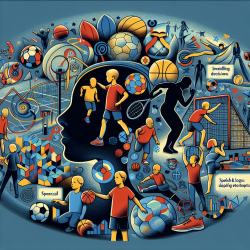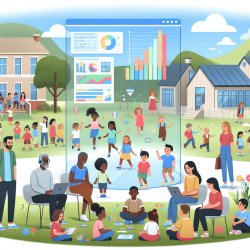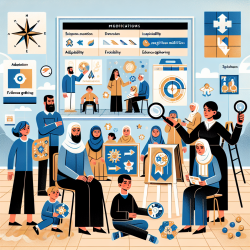As a practitioner in the field of occupational therapy, continuously improving your skills is crucial for delivering effective therapy. One of the ways to enhance your practice is by integrating historical literacy into your professional development. The research article "Developing occupational therapy students’ information and historical literacy competencies: an interprofessional collaborative project" provides valuable insights into how historical literacy can be beneficial. Here, we will explore how you can implement the outcomes of this research to boost your therapy skills and improve outcomes for your clients.
Understanding Historical Literacy
Historical literacy involves more than just knowing the events of the past. It requires the ability to glean appropriate information from various resources and engage in historical processes. This competency allows practitioners to understand the evolution of their profession and use this knowledge to inform their current practice and future decisions.
Key Findings from the Research
The study conducted by Fleming-Castaldy and colleagues examined the efficacy of an interprofessional project aimed at developing historical literacy among occupational therapy students. Here are some key findings:
- Students' self-reported competencies in information and historical literacy significantly increased after participating in the project.
- There was a significant improvement in assignment quality and grades.
- Students expressed high satisfaction with the course, highlighting the value of the teaching-learning activities and course resources.
Implementing Historical Literacy in Your Practice
Based on the research findings, here are some practical steps you can take to integrate historical literacy into your practice:
- Engage in Historical Research: Allocate time to explore the history of occupational therapy and related fields. Utilize resources such as historical archives, seminal works, and current literature to deepen your understanding.
- Incorporate Historical Context in Therapy: Use your historical knowledge to inform your therapeutic approaches. Understanding the evolution of certain techniques and practices can provide a richer context for your interventions.
- Collaborate with Librarians: Partner with librarians to develop your information literacy skills. Librarians can guide you in identifying and accessing historical resources effectively and efficiently.
- Reflect on Professional Identity: Reflect on how the history of your profession shapes your professional identity. This reflection can enhance your sense of responsibility and empowerment as a therapist.
Encouraging Further Research
While the study provides compelling evidence for the benefits of historical literacy, further research is needed to determine if these competencies are sustained post-graduation and how they impact long-term professional practice. As a practitioner, consider engaging in or supporting research initiatives that explore these areas.
By implementing the outcomes of this research, you can enhance your therapy skills and contribute to the ongoing development of the occupational therapy profession. Historical literacy not only enriches your practice but also empowers you to be an informed participant in shaping the future of your field.
To read the original research paper, please follow this link: Developing occupational therapy students’ information and historical literacy competencies: an interprofessional collaborative project.










